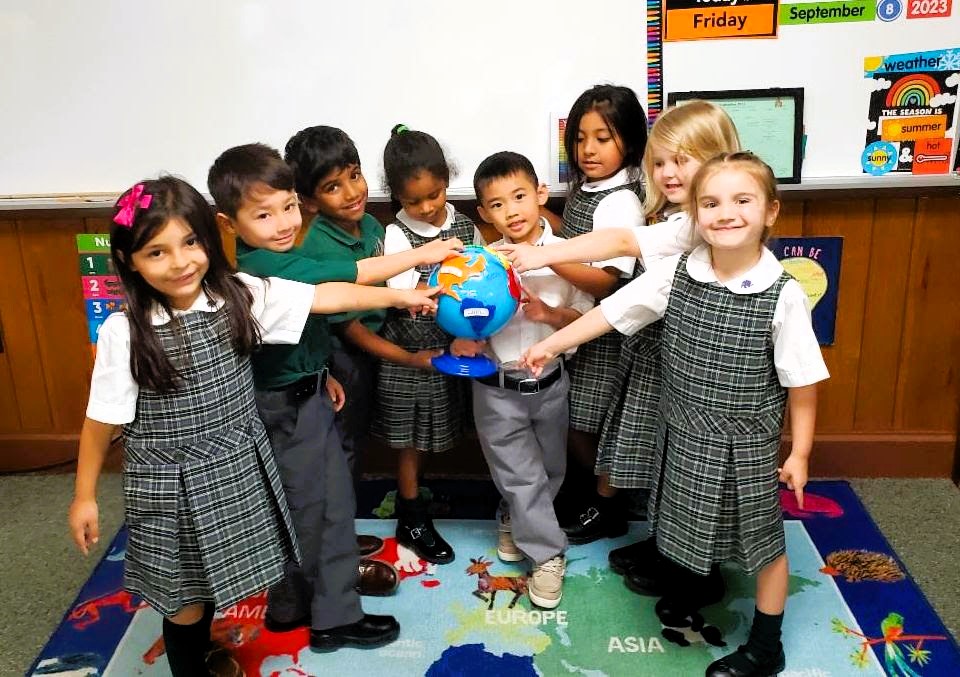Early childhood and primary education are crucial stages in a child’s development. These early years lay the foundation for a child’s future success in school and beyond. In this article, we will explore the importance of early childhood education, key principles of primary education, challenges and opportunities in these fields, and the future of education in the early years. Whether you are a parent, educator, or policymaker, understanding these concepts is essential for ensuring that all children have the opportunity to reach their full potential.

1. The Importance of Early Childhood Education
Cognitive Development
Early childhood education plays a crucial role in cognitive development. It helps children develop essential skills such as problem-solving, critical thinking, and creativity. Through play-based learning and hands-on experiences, children learn to explore their surroundings, ask questions, and make connections. Research has shown that children who participate in high-quality early childhood programs have better cognitive outcomes later in life, including higher academic achievement and improved problem-solving abilities. Early math concepts and language skills are also introduced during this stage, providing a strong foundation for future learning.
Social and Emotional Development
Early childhood education also fosters social and emotional development. Children learn to interact with peers, develop empathy, and regulate their emotions. Through social play and group activities, they learn to cooperate, share, and resolve conflicts peacefully. They also develop a sense of self-awareness and self-regulation, which are essential for success in school and beyond. Developing emotional intelligence is a key aspect of early childhood education, as it helps children understand and manage their emotions, build relationships, and cope with challenges.
| Cognitive Benefits | Social and Emotional Benefits |
|---|---|
| Problem-solving | Peer interaction |
| Critical thinking | Empathy |
| Creativity | Conflict resolution |
Physical Development
In addition to cognitive and social-emotional development, early childhood education also supports physical development. Children engage in active play, gross motor activities, and outdoor exploration, which help them develop coordination, balance, and fine motor skills. Physical activity is essential for overall health and well-being, and it also contributes to cognitive development by promoting brain growth and function. Physical activities are an integral part of early childhood education, as they help children develop healthy habits and a positive body image.
- Problem-solving
- Critical thinking
- Creativity
- Peer interaction
- Empathy
- Conflict resolution

2. Key Principles of Primary Education
Primary education builds upon the foundation laid in early childhood education and focuses on developing essential academic and social skills. Key principles of primary education include:
- Curriculum that is developmentally appropriate and aligned with educational standards
- Instruction that is engaging, hands-on, and inquiry-based
- Strong partnerships between teachers and parents
- A supportive and inclusive learning environment
- Assessment that is ongoing, formative, and used to inform instruction
| Principle | Description |
|---|---|
| Developmentally appropriate curriculum | Curriculum that is aligned with the developmental needs and interests of children |
| Engaging, hands-on instruction | Instruction that actively involves children in the learning process |
| Strong partnerships between teachers and parents | Partnerships that support children’s learning and development |
These principles are essential for creating a positive and effective learning environment in primary education. When these principles are implemented effectively, children are more likely to develop the skills and knowledge they need to succeed in school and beyond.

3. Challenges and Opportunities in Early Childhood and Primary Education
Addressing Disparities and Inequalities
One of the biggest challenges in early childhood and primary education is addressing disparities and inequalities. Children from disadvantaged backgrounds often have less access to high-quality early education and primary schools, which can lead to significant gaps in achievement. To address this challenge, it is essential to invest in programs that support children from low-income families and other marginalized groups. This may include providing financial assistance for early childhood education, expanding access to quality primary schools, and implementing targeted interventions to support children who are struggling.
| Challenge | Opportunity |
|---|---|
| Disparities and inequalities | Invest in programs that support children from disadvantaged backgrounds |
| Lack of qualified teachers | Provide professional development opportunities and support for teachers |
Preparing Children for the Future
Another challenge in early childhood and primary education is preparing children for the future. The world is constantly changing, and the skills that children need to succeed are also evolving. To meet this challenge, it is important to focus on developing children’s critical thinking, problem-solving, and creativity skills. This can be done through hands-on learning, project-based learning, and other innovative teaching methods. It is also important to ensure that children have access to technology and other resources that will help them prepare for the future.
The Role of Technology
Technology can be a powerful tool for enhancing early childhood and primary education. It can be used to personalize learning, provide access to a wider range of resources, and support collaboration between teachers and students. However, it is important to use technology in a way that is developmentally appropriate and that does not replace face-to-face interactions. By using technology wisely, we can help children develop the skills they need to succeed in the 21st century.

4. The Future of Education in the Early Years
The future of education in the early years is bright. There are many exciting new trends and developments that are shaping the way children learn and grow. One of the most important trends is the increasing focus on play-based learning. Research has shown that play is essential for children’s cognitive, social, and emotional development. It helps them develop creativity, problem-solving skills, and social skills. As a result, many early childhood educators are incorporating more play-based activities into their curriculum.
| Trend | Description |
|---|---|
| Play-based learning | Learning that is based on play and exploration |
| Technology integration | The use of technology to enhance learning |
Another important trend is the increasing use of technology in early childhood education. Technology can be a powerful tool for learning, and it can be used to personalize learning, provide access to a wider range of resources, and support collaboration between teachers and students. However, it is important to use technology in a way that is developmentally appropriate and that does not replace face-to-face interactions.
These are just a few of the trends that are shaping the future of education in the early years. As these trends continue to develop, we can expect to see even more innovative and effective ways to help children learn and grow.

Final Thought
Early childhood and primary education are essential for the development of well-rounded, successful individuals. By understanding the importance of these early years and working together to address the challenges and seize the opportunities, we can ensure that all children have the foundation they need to thrive.




